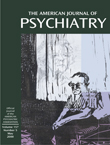The crude Cartesian dualism decried by Eric R. Kandel, M.D.
(1), has been succeeded by much subtler considerations of the relationship between what we still, for lack of better terms, call “mind” and “brain.” For instance, philosophers Frank Jackson
(2) and Thomas Nagel
(3), among others, have emphasized the degree to which subjective and objective descriptions are fundamentally different, and even irreconcilable, categories of explanation. Scientists aspire to a world view that is maximally objective and value neutral, whereas intrinsic to subjective phenomena are specific points of view and biased interests. In this view, a comprehensive objective science of human behavior may not be feasible. This is not to say that objective factors are irrelevant from a subjective standpoint, only that the former cannot, logically, account for all of experience. The issue then may not be some kind of ethereal substance called “mind” but rather the radical epistemological gulf that subjectivity represents.
The hallmark of psychoanalysis, and really all psychotherapy, is the attempt to fathom and, if possible, to ameliorate a patient’s subjective reality. Psychotherapy entails such entities as self, person, meaning, values, and free will—all of which may be even less reducible to biology than the vaguer notion of “mind.” Psychotherapy presupposes a freedom of subjective will that exists even in the context of great adversity. Psychotropic medication and other somatic treatments are necessary because there are obvious (and sometimes not-so-obvious) limits to freedom of will. The interplay of the two approaches, subjective and objective, touch on paradox and the limits of our understanding, but they are complementary and not mutually exclusive. If this argument turns out to be wrong, and biology does someday fully explain subjectivity, then traditional notions of autonomy and individual freedom will be discounted, psychotherapy will become superfluous, and our views of human beings, self, and other will alter in ways that are difficult to foresee.
Dr. Kandel is right that on experimental grounds, psychoanalysis never has been a science; rather, it is a hodgepodge of psychological theory, history, and literature. He laments the possibility that psychoanalysis may be relegated to the realms of philosophy and literature. His implication is astute, and his article convincingly advocates the replacement with biology of that part of psychoanalysis that has purported to be objective explanation. What remains is a wealth of thought about history, society, and art. In fact, it is notable that the decline of psychoanalysis within psychiatry has been paralleled by its meteoric rise in the fields of aesthetics and literary theory.
Psychoanalysis is being split asunder. Its scientific and objective aspirations, after long and eminent careers as heuristics for empirical research, are in the process of being consumed by biology, whereas its philosophical aspects live on as gloriously as before. It is no wonder that Freud vacillated between scientific and hermeneutical views of his creation, which, at times, he recognized as a loose and unstable amalgam.

